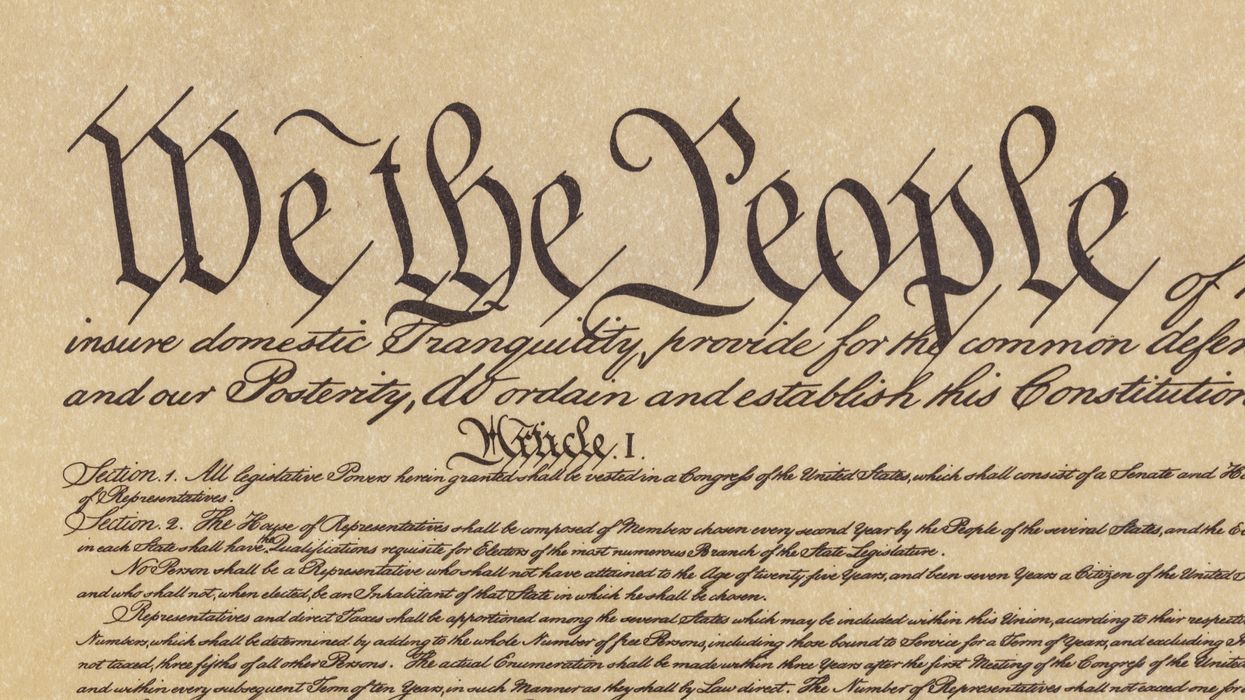LaRue writes at Structure Matters. He is former deputy director of the Eisenhower Institute and of the American Society of International Law.
The following article was accepted for publication prior to the attempted assassination attempt of Donald Trump. Both the author and the editors determined no changes were necessary.
The roots of many contemporary political problems can be found in the Constitution. Its institutions are creaky, and rights that are new or threatened need anchors.
But the roots of these problems also extend to the people and principles beneath the structures and rights secured by the Constitution. Sure, changing term lengths across all three branches of government or advancing voting rights are worthy amendment topics. It is critical, however, that we re-embrace the fundamental role we citizens have.
This is why “We the People” — the heart of the Constitution — matter most. We are still the ones who elect our representatives, senators (after the 17th Amendment in 1913) and the president (sort of, via the Electoral College).
The framers weren’t flawless, but they deserve credit for creating a government that confronts how bad humans can be. The separation of powers, checks and balances, and federalism may be frustrating, but they prevent power from being consolidated and more easily abused, a risk the framers knew would be perpetual.
Paradoxically, they also understood that our public officials must be good — virtuous, as they asserted repeatedly — if our democracy is to work as intended. Yet we citizens remain the only ones who can put malignant or malicious perpetrators into office. Can we reduce this complementary risk? Yes, with these four steps:
First, vote. But don’t stop there. A constitutional democracy asks more of us, particularly in the 21st century, when performative partisanship, misinformation and disinformation prevail. Foreign policy expert Richard Haass called our deteriorating civic life the greatest security threat facing the nation. In “ The Bill of Obligations,” he described 10 “habits of good citizens” that each of us can do to strengthen America, including staying informed, getting involved, valuing norms and supporting civics education. Our “[c]ollective identity” he said, “is a matter of teaching, not biology.”
Second, dial back the animosity toward those with whom we disagree. It’s an old saw, and easier said than done, but disagreeing agreeably is as necessary as it is laudable. We need to remind our representatives to rediscover this lost art, too. That means changing their incentives from appealing to a narrow, primary electoral base while restoring their constitutional role of bargaining, negotiation and compromise. Yuval Levin clarifies in his latest book, “ American Covenant,” how a diverse nation must use this fundamental, Madisonian approach to govern itself. He also emphasizes that national unity is less about what we think and more about what we do.
Third, refresh our appreciation for the full range of principles expressed in our constitutional structure, which might best be accomplished by reading “ The Pursuit of Happiness ” by the National Constitution Center’s president, Jeffrey Rosen. The philosophies and values beneath the service, citizenship and representation that shaped the founders’ thinking when they crafted the Constitution are considered classical for a reason; in Rosen’s hands, they come alive. He vibrantly shows how the founders tapped the work of great thinkers, from Cicero and Epictetus to Hume and Locke, to conceive the nation’s constitutional design. Their perspectives on restraint, moderation, humility and other traits are surprisingly resonant for re-anchoring our public morals today.
Lastly, recognize that we are all reformers, whether active or passive. As the artist Georgia O’Keeffe said in 1981, reflecting on moving to and living in northwestern New Mexico, “When you start making a home, it is difficult to stop changing it, imagining it different.”
It may be trite to equate our government or nation with a residence, and odder still to do so by citing an introverted artist. But few analogies work better. We are individually and collectively building and living in a home called America. We may disagree about small matters, say a paint color, or large matters, perhaps a renovation. But we need to agree about the largest matters, such as fixing leaky roofs, broken door hinges and cracked foundations.
And then there is how we treat those residing in the other rooms. Suggesting that “We the People” need a civic reboot is not a slur against any or all of us; it simply places us where we belong — at the center of our country, our government, our home — and evokes our responsibility of “imagining it different.” The cyclical waves or spirals that bring change don’t happen unless we use our imagination.
So keep at it, America. O’Keeffe captured the essence of human striving to better our world. Perhaps more than her artwork, her civic wisdom can inspire us all.




















Trump & Hegseth gave Mark Kelly a huge 2028 gift